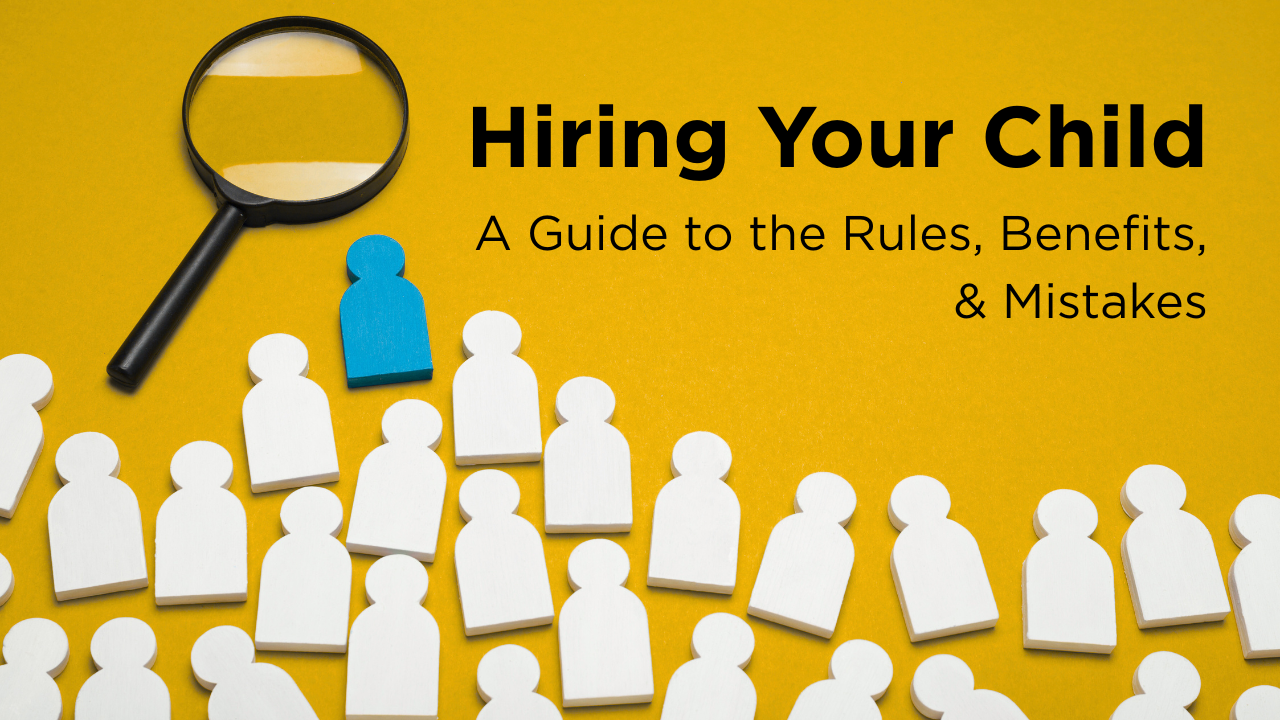

With school out for the summer, many parents begin to wonder how to keep their kids productive—and ideally, how to involve them in the family business. Hiring your children can be a fantastic way to instill a strong work ethic, provide valuable real-world experience, and even reduce your family’s overall tax burden. But it’s critical to do it the right way.
Here’s a practical guide to help you navigate the rules, maximize the benefits, & avoid costly mistakes:
The IRS requires that the work performed by your child must be real and directly tied to your business operations. Tasks should be age-appropriate and meaningful.
Examples include:
• Office work: filing, organizing supplies, data entry
• Marketing support: social media management, content creation
• Operations: cleaning the office, organizing inventory
Avoid giving them tasks that are personal in nature or unrelated to the business, such as household chores.
Compensation must match the market rate for the work. Overpaying (e.g., $50/hour for filing papers) can trigger scrutiny & disallowed deductions. Do your homework to determine what someone would reasonably be paid for the same role outside your family.
Sole Proprietorship or Partnership (with both parents as partners):
• Under age 18: Exempt from Social Security & Medicare
• Under age 21: Exempt from FUTA (Federal Unemployment Tax)
• Still subject to federal income tax withholding
Corporation or partnership with outside partners:
• Wages are subject to all employment taxes regardless of the child’s age
Good records protect your deduction:
• Written job descriptions
• Time sheets & task logs
• Payment via check/direct deposit
• W-2 issued at year-end
Even though you’re the parent, you still need to follow the law:
• Kids under 14 are restricted in the work they can perform
• No hazardous duties
• Check your state-specific rules, too
If your child earns income, they can contribute to a Roth IRA.
Early contributions can compound for decades—helping them start early on long-term wealth building.
• Misclassifying your child as a contractor
• Overpaying for simple work
• Skipping documentation—which can destroy your deduction in an audit
Having your child work in your business can be incredibly rewarding—financially & personally. But it’s essential to follow the rules carefully. Overlooking small details can create headaches for you, your business, & even your child.
Done right, though, it’s one of the most valuable family finance strategies available.
IRS.gov – https://www.irs.gov/businesses/small-businesses-self-employed/family-employees
Start a conversation to learn more about who we are and what we do. Our team is ready to make an impact.
Contact Us